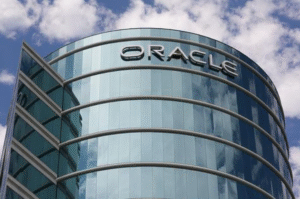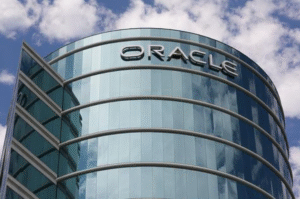$HOOD $SPX #Robinhood #SP500 #Crypto #Fintech #StockMarket #AfterHours #Trading #Investing #FinancialNews #MarketTrends
Will Robinhood’s S&P 500 Entry Boost Your Portfolio? Why Bitcoin Giants Aren’t Making the Cut!
In the latest wave of market movements, Robinhood, a platform at the crossroads of modern finance and cryptocurrency innovation, has seen its shares surge by 7% in after-hours trading. This significant uptick came shortly after an announcement that the S&P 500 would be welcoming the crypto-focused fintech company into its prestigious ranks. This development is crucial for investors and market watchers, especially those tuned into the dynamics between traditional financial avenues and the burgeoning crypto sector.
Understanding the Impact of Robinhood’s Inclusion in the S&P 500
The inclusion of Robinhood into the S&P 500 is not just a testament to its growth and the increasing acceptance of crypto-oriented businesses in mainstream finance but also poses potential ripple effects on investor portfolios. Historically, being added to a major index like the S&P 500 can lead to an increase in stock visibility and potentially greater liquidity due to the influx of index fund and ETF investments that follow such listings.
Moreover, for everyday investors, this inclusion could signal a more robust integration of crypto options within traditional investment portfolios. As Robinhood has been a significant player in democratizing access to cryptocurrency trading, its entry into the S&P 500 highlights a shift towards more inclusive financial ecosystems.
Discover more about stock market trends and insights.
Why Are Bitcoin Giants Left Behind?
While Robinhood makes its landmark entry into the S&P 500, several prominent Bitcoin-oriented companies remain on the sidelines. The criteria for inclusion in the S&P 500 involve not just market capitalization but also profitability and company structure, areas where some crypto giants still face challenges. Regulatory uncertainties and the volatile nature of cryptocurrency markets could also contribute to the hesitation from major indices to include these companies.
This situation leaves an open question about the future role of pure-play crypto companies in traditional financial indices, and whether their innovative yet unstable business models can align with the stringent requirements of such indices.
Explore cryptocurrency investment opportunities.
Investment Strategies in a Changing Landscape
For investors, the scenario presents a dual-edged sword. On one side, the inclusion of fintech and crypto-focused companies like Robinhood could diversify and potentially stabilize portfolios. On the other, the exclusion of major Bitcoin players keeps certain high-reward opportunities at bay. Hence, investors need to be agile, well-informed, and possibly reevaluate their investment strategies to accommodate these shifts.
Moreover, understanding the broader economic and geopolitical landscape can further aid investors in navigating this evolving market. For instance, considering factors such as international regulatory changes, technological advancements, and economic shifts can provide deeper insights into potential market movements.
Final Thoughts on Robinhood News
The recent robinhood news of its inclusion in the S&P 500 is a pivotal development for the fintech and cryptocurrency industries. It reflects a growing recognition of digital currency platforms within traditional financial markets, suggesting a potential shift in investment paradigms. As the financial ecosystem continues to evolve, staying updated and adaptable will be key to leveraging opportunities and mitigating risks in both the stock and crypto markets.
In conclusion, while this inclusion marks a significant milestone for Robinhood and its users, the broader implications for the market and other crypto giants remain an area ripe for exploration and strategic adaptation.











Comments are closed.